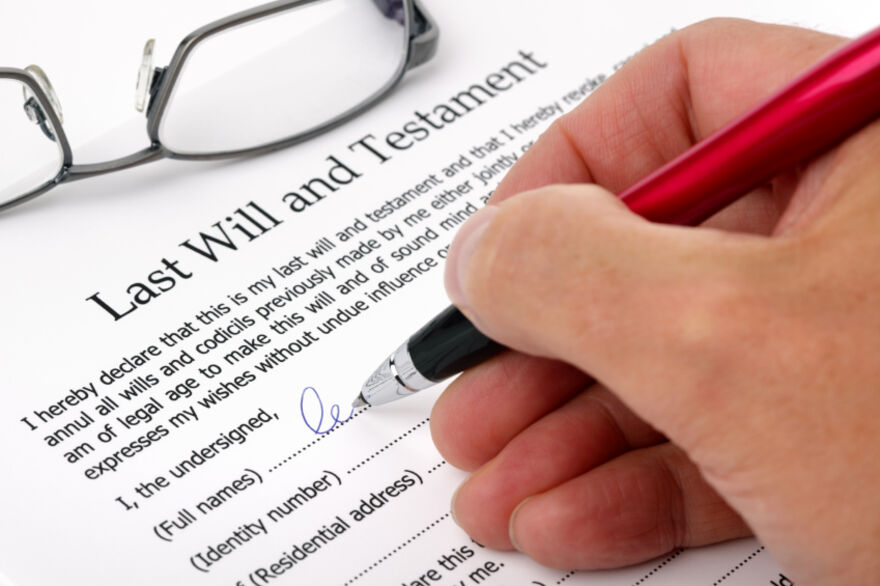The days of dusty lawyer’s offices (and perhaps dusty lawyers!), rows of law books and quills as a necessity for a Will to be written are, thankfully, long gone. As the law has modernised so have the means by which Wills can be drafted.
This is not always a good thing. The use of “off the shelf” Will packs can give the impression that writing a Will is a simple, tick box task and runs the risk that tax planning opportunities are missed or that formalities are skipped resulting in the Will itself being invalid.
Earlier this year the Court was asked to consider whether a draft Will found on the computer of the deceased after his death could be admitted to Probate as his last Will. The case – Cooper & Anor v Chapman & Ors [2022] EWHC 1000 - was a highly unusual case.
Background
In 2009 Dr Steven Cooper made a Will which left his Estate to his wife and, in the event of her death, his two children. He was married at the time but separated from his wife in 2014 and they divorced two years later. The divorce made provision for their children.
Divorce does not invalidate a Will.
In 2018 Dr Cooper started a new relationship Ms Chapman, a longstanding friend, and that same year drafted a Will using a template on his computer. Ms Chapman claimed that the Will had been printed out, signed by the deceased on about the 27th March 2018 in the presence of two of her relatives acting as witnesses.
The 2018 Will did not make provision for his children and Dr Cooper stated that he believed they had been adequately provided for by the terms of his divorce.
Sadly and unexpectedly the deceased died later that same year but following his death no hard copy of the signed 2018 Will could be found.
Dr Cooper’s ex-wife, acting on behalf of her children, sought to prove the 2009 Will and obtain a Grant of Probate on that basis. She disputed Ms Chapman’s version of events regarding the 2018 Will on the grounds that either they had not occurred or that Dr Cooper had later destroyed the Will with the intention of revoking it.
The Court was faced with deciding whether the 2018 Will had been signed and witnessed, what the content of the Will had been and whether or not it should be presumed that Dr Cooper had revoked it.
The Wills Act 1837
For a Will to be valid, the law requires that it must be signed in the presence of two witnesses present at the same time. The original signed Will is filed with the Probate Registry after death when the application for a Grant of Probate is made.
In some cases where the original Will cannot be located, a copy can be produced and relied up on if it can be shown that (a) the original Will was executed and (b) the loss was not a result of the person who made the Will destroying his or her Will with the intention to revoke it.
The decision
Evidence was provided by computer experts who identified when the 2018 Will was created and when it was amended. They were also able to confirm that the Will was transferred to a different computer and had not been changed and that the date it was last accessed was consistent with the reports of the date it was signed.
Ms Chapman produced witness evidence from the people who had witnessed the Will to support her case.
The Court found that the 2018 Will had been properly executed in the form of the draft on Dr Cooper’s computer and held that, on the balance of probabilities, it had not been revoked. Ms Chapman was therefore entitled to a Grant of Probate on the basis of the 2018 Will.
A Way Forward?
This was a highly unusual case and it is unlikely to create a raft of litigation to prove drafts of Wills found on computers. The Cooper case turned on its particular facts and there was expert and witness evidence in support of what was said about the execution of the 2018 Will. It is not always going to be possible to secure such evidence.
Copy Wills are produced to the Probate Registry to obtain a Grant of Probate and that will continue to be the case. These are most usually copies of the signed and executed Will of the deceased where the original has been lost or damaged and it is clear that the copy Will is an exact replica of the lost original.
There is no substitute for making a Will and instructing a qualified professional to help you to draft it. Keeping that document safe and ensuring that relatives or Executors know where to find it is equally important and can save grieving relatives the task of hunting high and low for a Will and avoid the risk that the wrong Will is submitted to Probate.
If you are concerned that a Will may not have been drafted properly you should speak to our expert team of contested wills and probate lawyers as soon as possible so that we can advise on the practical steps that you might be able to take. For further information click here.
The information on this site about legal matters is provided as a general guide only. Although we try to ensure that all of the information on this site is accurate and up to date, this cannot be guaranteed. The information on this site should not be relied upon or construed as constituting legal advice and Howes Percival LLP disclaims liability in relation to its use. You should seek appropriate legal advice before taking or refraining from taking any action.

